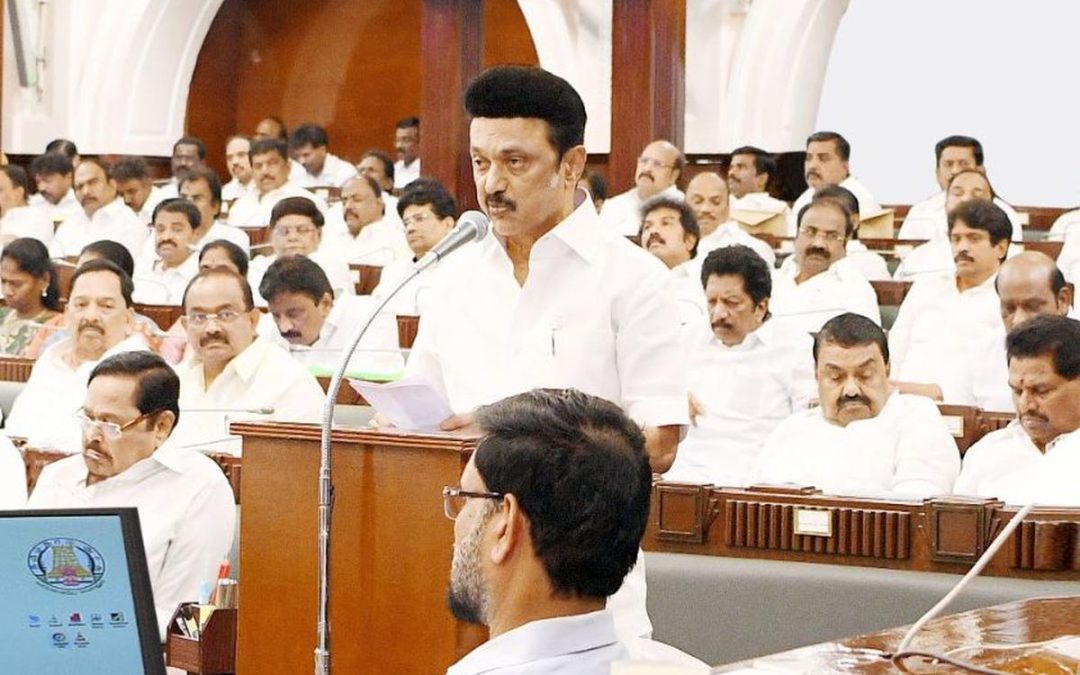The Tamil Nadu assembly on Friday passed a resolution urging the Union government to abolish the National Eligibility cum Entrance Test (NEET) and amend the National Medical Commission Act, calling for a return to state-based medical admissions using Class 12 marks. This move comes amid nationwide protests over allegations of irregularities and paper leaks in this year’s NEET examination.
The resolution was adopted amid protests and a walkout by Bharatiya Janata Party (BJP) MLAs. It received support from the ruling Dravida Munnetra Kazhagam (DMK), its allies Congress, Viduthalai Chiruthaigal Katchi (VCK), Left parties, and NDA constituent Pattali Makkal Katchi (PMK). The principal opposition, AIADMK, was absent as its members were suspended for disrupting the House over the Kallakurichi hooch tragedy incident.
Tabling the bill, DMK chief Stalin argued that the previous method of state-based admissions helped medical aspirants from all parts of the state become doctors. He criticized NEET, introduced in 2017, for making medical education unaffordable for poor students. He highlighted that rural students, unable to attend coaching classes, struggle to pass the test, adversely affecting medical services in rural areas.
It further added, “In the backdrop of several states opposing the exam, this House unanimously resolves that the Union government should amend the National Medical Commission Act so that NEET is scrapped for the entire country.”
The BJP, however, has maintained that “we need NEET”.
The BJP maintained that NEET is necessary. BJP floor leader Nainar Nagendran questioned the repeated tabling of the resolution by the DMK, saying, “When the DMK knows that it is not possible to scrap the exam, why are they repeatedly tabling a resolution?” He pointed out that irregularities have also been observed in Class 12 exams but argued that this does not justify abolishing the exam altogether.
The resolution comes amid controversies over NEET and other examinations. Allegations of paper leaks and logistical issues have sparked protests across India. This year’s NEET-UG faced allegations of question paper distribution errors and a paper leak, leading to arrests and ongoing investigations. Over 2.4 million students took the NEET-UG exam at 4,750 centers across 571 cities on May 5.
Following the NEET results, protests erupted due to alleged inflated marking and arbitrary allowance of grace marks. The Supreme Court allowed the National Testing Agency (NTA) to withdraw grace marks given to 1,563 students and conduct a retest for them on June 23. The court is set to hear multiple petitions on the issue on July 8.
On June 19, the education ministry postponed the UGC-NET examination, which was set to be taken by 908,580 candidates at 1,200 centers. The next day, Education Minister Dharmendra Pradhan revealed that the agency tracking cybercrime for the Union home ministry had informed the UGC of a specific UGC-NET question paper leak on the darknet. Subsequently, on June 21, the ministry also postponed the joint Council of Scientific and Industrial Research (CSIR) UGC-NET exam.
NEET is a particularly sensitive issue in Tamil Nadu, where more than a dozen students have died by suicide since 2017 due to fears of failing the exam or actual failure. The Tamil Nadu assembly has previously passed bills seeking exemption from NEET — one by AIADMK in 2017 and another by DMK in 2021. The 2021 bill, backed by a panel recommendation, was returned by Governor RN Ravi but was readopted by the House and forwarded to the President of India for assent.






